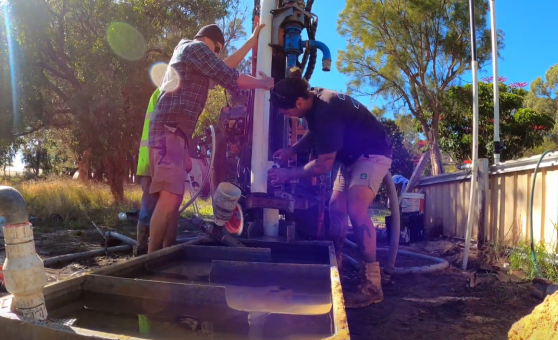Water Bore Drilling: Benefits, Process, and Choosing the Right Service
Water is an essential resource for human survival, agriculture, and many industries. With global water shortages becoming an increasing concern, many homeowners and businesses are seeking alternative water sources. Water bore drilling, also known as well drilling, offers an attractive solution. This comprehensive guide will cover the benefits of water bore drilling, explain the process, and provide insights into selecting the best service for your needs.
Benefits of Water Bore Drilling
- Sustainable Water Supply: A water bore provides direct access to underground water, reducing dependence on municipal supplies or surface water sources. Especially for regions prone to drought, having a consistent water supply can be invaluable.
- Economic Benefits: While the initial investment in bore drilling might be substantial, in the long run, accessing your own water can lead to significant savings on water bills.
- Environmental Advantages: Groundwater is often a more sustainable water source compared to over-relying on dams and reservoirs. By reducing pressure on these traditional sources, the environment can benefit.
- Water Quality: Groundwater is typically free from harmful contaminants and organic materials, making it a safe source for gardening, irrigation, and sometimes even drinking, after appropriate testing and treatment.
- Land Value Increase: A property with its own reliable water source can see an increase in its market value, making it a good long-term investment.

Reach Us for other Services
The Process of Water Bore Drilling
- Site Evaluation: Before any drilling begins, a thorough site evaluation is conducted to assess the feasibility of the bore. This involves studying geological maps, understanding the region’s water table, and sometimes using electronic devices to locate the water underground.
- Choosing the Right Drill: Depending on the terrain and the depth required, the right kind of drill is chosen. There are different drills for rocky terrains, sandy soils, and clayey regions.
- Drilling the Bore: Once everything is set, the drilling process begins. The drill penetrates the ground, reaching depths where water is available.
- Inserting the Casing: After the desired depth is reached, a casing is inserted into the bore. This casing, usually made of steel or PVC, ensures that the bore remains open and prevents contaminants from entering the water source.
- Water Pump Installation: To extract the water, a pump is installed. The type of pump depends on the bore’s depth and the water’s intended use.
- Testing: After the installation, the water is tested for quantity and quality. It’s essential to ensure there’s a consistent supply and that the water is safe for its intended use.
Choosing the Right Service
- Experience Matters: Bore drilling is a technical task requiring experience and expertise. Look for services that have been in the industry for several years and come with good recommendations.
- Understanding of Local Geology: Each region has its geological peculiarities. Ensure the service you choose has experience drilling in your specific area and understands the local geology.
- Licenses and Certifications: Bore drilling requires specific licenses, as it involves tapping into natural resources. Always choose a certified and licensed service.
- Modern Equipment: The right machinery can make a significant difference in the drilling process. Check if the service provider uses modern, well-maintained equipment, ensuring efficiency and safety.
- Transparent Pricing: Understand the cost structure. Some services might offer a lower drilling rate but might charge more for casings or pumps. Get a thorough estimate to prevent unpleasant surprises later.
- After-Sales Service: Bore maintenance is crucial. Ensure the drilling service provides maintenance or can recommend good maintenance services.
- Check Reviews and Testimonials: Past customers can offer insights into the quality of service provided. Look for reviews online or ask the company for testimonials.
Additional Tips
- Water Treatment: Depending on the intended use, you might need to treat the water. For potable purposes, filtration and purification systems might be required.
- Regular Maintenance: Over time, bores can develop issues, like reduced water flow, due to sediment buildup or casing problems. Regular check-ups and maintenance can prolong the bore’s life.
- Legal Permissions: Different regions have different regulations concerning water bore drilling. Ensure you have the necessary permissions and are adhering to local laws and guidelines.
- Future Needs: When drilling a bore, consider future water needs. It’s more economical to drill a slightly deeper bore now than to deepen it later.
- Backup Systems: While groundwater sources are reliable, having a backup system, like rainwater harvesting, can ensure you’re never short of water.
In conclusion, water bore drilling offers a sustainable solution to water needs, especially in regions where water scarcity is a concern. It’s an investment that can offer economic, environmental, and practical returns. But the success of this venture heavily depends on choosing the right service and maintaining the bore properly. By staying informed and partnering with experts, you can ensure a consistent water supply for years to come.
Quality Services is what we do!
Interested in any of our services? Contact us to make an appointment and get started!
Copyright © 2024 Swell Irrigation. All Rights Reserved
